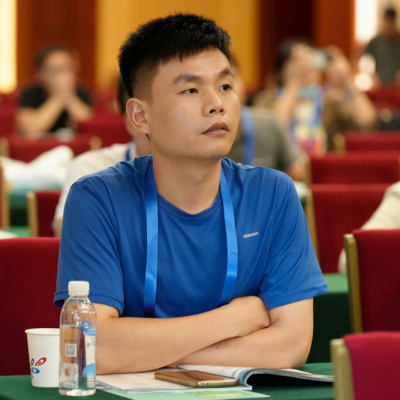Dr. Zhang works with chromosomal variation in plants, and the distribution and evolutionary significance of genome modification on wild sunflowers. Through his work, he hopes to look at how plants adapt and thrive in alpine environments.

Research topic
Research Description
My research focuses on uncovering the genomic and selective mechanisms that facilitate speciation despite ongoing gene flow, with particular emphasis on recombination modifiers such as chromosomal inversions and DNA methylation. Currently, I am investigating the distribution, establishment, and evolutionary significance of these modifiers in wild sunflower (Helianthus) species. My work integrates chromosomal-scale genome assembly, systematic characterization of chromosomal inversions, and genome-wide analysis of DNA methylation patterns to elucidate their roles in adaptation and speciation. I am also interested in the genetic basis of high-altitude adaptation, examining population divergence and local adaptation of alpine plants along altitudinal gradients.
Why did you decide to pursue a postdoctoral fellowship at UBC? Did you consider other opportunities?
I chose to pursue a postdoctoral fellowship at UBC because of its outstanding research environment. UBC and Dr. Loren Rieseberg’s lab offer extensive resources in evolutionary genomics, ongoing projects that align with my research interests, a collaborative environment with access to cutting-edge facilities, and a network of leading researchers.
What specifically attracted you to your research group?
I was drawn to Dr. Rieseberg’s exceptional expertise in evolutionary genomics, particularly his pioneering works on plant adaptation and speciation. Dr. Rieseberg’s leadership in the field, combined with his focus on using cutting-edge genomic tools to address complex evolutionary questions, made his research group the ideal place for my postdoctoral work.
What advice do you have for new postdoctoral fellows?
Stay open to collaboration and actively seek mentorship—it can greatly enhance your research. Take advantage of available resources and training opportunities, and don’t hesitate to share your ideas. Finally, maintain a good work-life balance to stay productive and motivated.
What do you like to do for fun?
I love to be outdoors and enjoy hiking and exploring nature, which inspires my research on plant adaptation. I also like playing badmintion, reading about history, and trying new cuisines.
What is the most enjoyable aspect of your postdoctoral fellowship?
The most enjoyable part of my postdoctoral fellowship is the freedom to explore innovative research questions while collaborating with experts in evolutionary biology. I also appreciate access to cutting-edge genomic technologies and the opportunity to mentor and engage with the scientific community.
What does receiving this award mean for your career?
Receiving the Banting Postdoctoral Fellowship is a tremendous honour and a significant boost to my career. It provides the resources and independence to pursue cutting-edge research, strengthens my ability to collaborate with leading scientists, and enhances my prospects for securing a faculty position in the future.